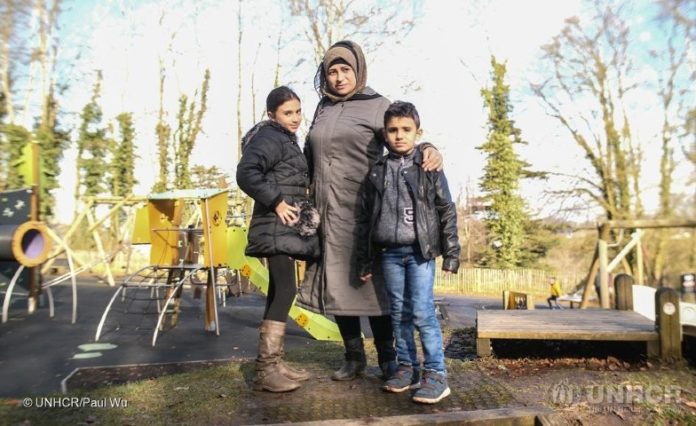Since the beginning of the European coronavirus outbreak, people across the continent have rallied together to help one another. Among these, many refugees are helping their communities at the forefront of the fight against the virus.
Hundreds of foreign-born doctors, including refugees and asylum seekers, have enrolled since the outbreak to become medical support workers.
To help tackle the virus, Spain has announced plans to fast-track the status of 200 foreign-born doctors and nurses. Germany also called on medically qualified migrants to help fight the virus as it faced increasing staff shortages. In the UK, hundreds of refugee doctors have appealed to the government to fast-track their accreditation so they can help fight the virus and the Irish Medical Council has said that medically trained refugees and asylum seekers may be able to provide “essential support” during the coronavirus pandemic. In France refugee medical professionals have already been recruited into the health system and medical professionals from China, Albania, Cuba and Russia travelled to Italy to help the European country so far worst affected by the virus.
The UN High commissioner for refugees, Filippo Grandi, has praised these people for their “selfless determination” and has called for more countries to allow refugee medical professionals to help fight the pandemic. “Refugees with proven professional competencies are ready to step in and contribute, if allowed to, under the supervision of certified health professionals. In this way, they can show their solidarity, and give back to the communities sheltering them,” said Grandi.
When the outbreak started in France, Mohamed immediately registered to help support medical staff in hospitals. Mohamed, who worked as a doctor in his home country of Libya until he was forced to leave in 2016, highlighted the role of refugee doctors during the pandemic. “Refugee doctors can contribute to fight the virus … I am ready to do anything to help. I can work in the emergency room in a hospital at any position. I can be an assistant nurse; I can help in giving information. For all these positions, it’s very important to have staff in hospitals who know how to deal with such a situation. You have to be very careful, even in carrying the garbage.”
Yasin also studied medicine and qualified as a doctor in Somalia before he arrived in France as a refugee three years ago. Since then he has founded Network of Exiles, an NGO that amongst other things translates documents for refugees and asylum seekers and is currently translating information on the health crisis in France. So far the NGO has translated over 220 documents. “Hospitals, charities and accommodation centres have been sending us documents, certificates and flyers, and we have been translating them for free,” said Yasin. “Some asylum seekers don’t understand the lockdown, so we help to explain in their own language.”
Those without medical training are also helping to tackle the virus through daily acts of kindness.
In the UK, Md Mominul Hamid Abir is spending this time delivering emergency food packages to Newcastle’s most vulnerable asylum seekers. Md, who arrived in the UK from Bangladesh aged 18, has dedicated his life to social justice. “Social justice is in the core of my value as a resident. I think it is my responsibility to stand in solidarity and help the people in my community who are in need in this challenging time. Being an asylum seeker myself it is vital we don’t forget society’s vulnerable.”
In the Netherlands asylum seekers are doing their bit to protect local residents from the coronavirus. John and Faith Napoleon walk three kilometres every day to clean a train station in Maarheeze, a small town in the region of North Brabant. The couple clean the bathrooms and showers everyday, “I wanted to contribute to society. This coronavirus affects us all. Then we must all fight against it,” says John. And in Ter Apel, another village in the north of the Netherlands, asylum seekers clean shopping trolleys and baskets all day long. Shahroze who arrived in the Netherlands just seven months ago is already keen to give back to his new community: “We have a roof over our heads and food here. I think it’s time for us to get involved to fight the coronavirus. We want to give something back.”
Refugees and asylum seekers are among some of the most vulnerable members of our societies, exposed to many of the huge risks presented by the virus. In light of this, the significant contribution of refugees and asylum seekers, either as medical staff in hospitals or as generous citizens in our communities, is all the more meaningful and must be acknowledged.
Additional links:


